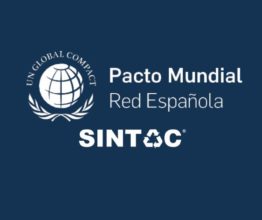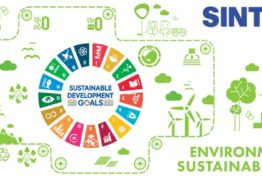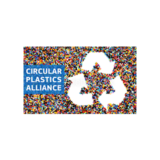What is the Global Compact and what is it?
The United Nations Global Compact is a strategic initiative that supports global companies committed to responsible business practices in the areas of human rights, labour, environment and corruption. This UN-led initiative promotes activities that contribute to sustainable development goals to create a better world.

Objectives of this international initiative:
Following the adoption of the United Nations Sustainable Development Goals in September 2015, the Global Compact was mandated to raise awareness and help businesses contribute to the new development agenda.
This agenda, for the first time, positions businesses as key development actors and puts their contributions to sustainable development on a par with those made by states and civil society. The United Nations is thus committed to beginning to see business not only as a generator of wealth, but also of development at the global level.
To this end, it is necessary to overcome the “do no harm” barrier; in other words, it is not enough for companies not to cause negative impacts on their stakeholders and society as a whole, but they must begin to act as agents of development, causing positive impacts that change the way of doing business and improve the well-being of society as a whole.
This is where the Sustainable Development Goals play an essential role, providing companies with a universal and coherent framework to guide their contributions to sustainable development and create shared value. Companies, depending on their sector and business model, should identify which goals and targets they can influence and start undertaking activities and operations to contribute to sustainable development, locally and internationally.
In short, it is not enough to “do no harm” by following the guidelines of the 10 Principles. Today we are working to embed positive impact in the business sector. It is about business embracing both the 10 Principles and the 17 SDGs, both of which are cross-cutting frameworks in terms of the issues they address and the goals they pursue. Only in this way will we achieve a world in which business acts responsibly and delivers sustainable development.

What are the 10 Principles of the Global Compact?
The Ten Principles of the United Nations Global Compact are based on the Universal Declaration of Human Rights, the International Labour Organisation’s Declaration on Fundamental Principles and Rights at Work, the Rio Declaration on Environment and Development and the United Nations Convention against Corruption.
HUMAN RIGHTS
Principle 1: Businesses should support and respect the protection of internationally proclaimed human rights.
Principle 2: Ensure that they are not complicit in human rights abuses.
LABOUR
Principle 3: Businesses should uphold the freedom of association and the effective recognition of the right to collective bargaining.
Principle 4: Elimination of all forms of forced and compulsory labour.
Principle 5: The effective abolition of child labour.
Principle 6: Elimination of discrimination in respect of employment and occupation.
ENVIRONMENT
Principle 7: Businesses should support a precautionary approach to environmental challenges;
Principle 8: Undertake initiatives to promote greater environmental responsibility.
Principle 9: Encourage the development and diffusion of environmentally friendly technologies.
ANTI-CORRUPTION
Principle 10: Businesses should work against corruption in all its forms, including extortion and bribery.
Correlation with the 2030 Agenda goals
Following the adoption in September 2015 of the Sustainable Development Goals of the United Nations 2030 Agenda, the Global Compact was given the mandate to raise awareness and help businesses contribute to the new development agenda.
This agenda, for the first time, places companies as key agents of development and places their contributions to sustainable development on the same level as those made by states and civil society. The United Nations is thus committed to beginning to conceive of companies not only as actors that generate wealth, but also development at a global level.
In other words, it is not enough for companies not to cause negative impacts on their stakeholders and society as a whole, but they must begin to act as agents of development, causing positive impacts that change the way of doing business and improve the well-being of society as a whole.

This is where the Sustainable Development Goals play an essential role, providing companies with a universal and coherent framework to guide their contributions to sustainable development and create shared value. Companies, depending on their sector and business model, should identify which goals and targets they can influence and start implementing activities and operations to contribute to sustainable development, locally and internationally.
Sintac since its birth more than 25 years ago, the recycling of plastic materials, and therefore sustainability. We consider ourselves a responsible company and aligned with the environment; therefore, we have since 2017 with a department dedicated exclusively to the development of Sustainability projects, in addition to having an Environmental Communication department, we are very aware of carrying out good practices to implement in favour of sustainability communicating and calling to action the rest of our community.
We believe in the transition towards a sustainable and responsible model, based on the principles of social, environmental and corporate responsibility, and we work to do our bit for the sustainable development of our planet.
Now we ask ourselves, how do you align yourself with this Global Compact?













